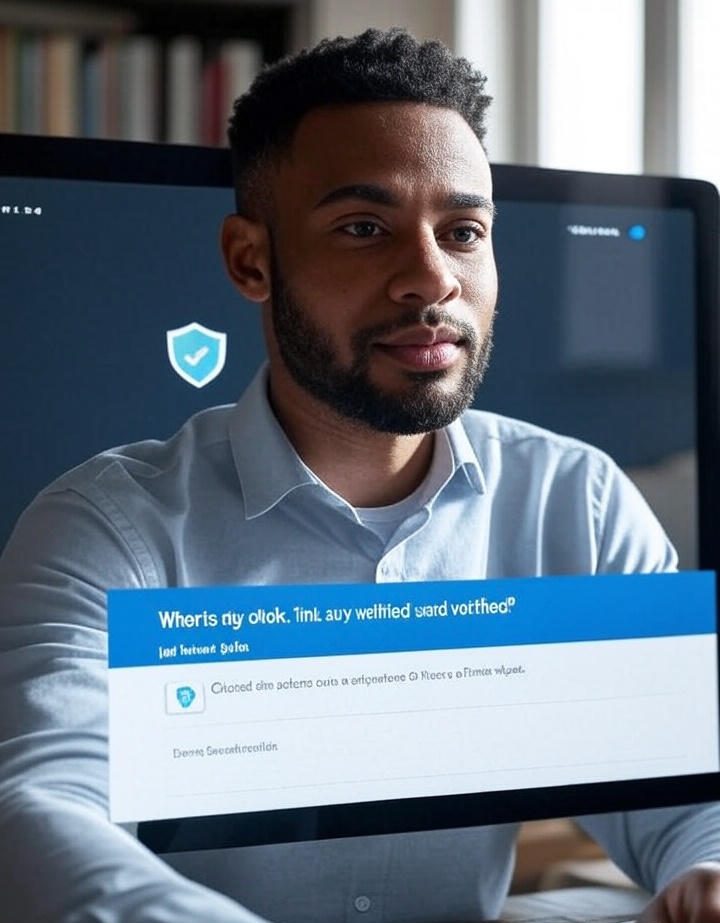 Trustworthy online directories act as gatekeepers in a chaotic digital world. With cyber threats like phishing and malware lurking around every corner, these curated platforms provide a vital layer of protection. They don’t just list websites; they rigorously vet them, ensuring users can browse with confidence. By prioritizing security checks like SSL validation, HTTPS enforcement, and phishing detection, verified directories create a safer internet experience. Let’s explore why these quality-controlled platforms are indispensable for secure browsing.
Trustworthy online directories act as gatekeepers in a chaotic digital world. With cyber threats like phishing and malware lurking around every corner, these curated platforms provide a vital layer of protection. They don’t just list websites; they rigorously vet them, ensuring users can browse with confidence. By prioritizing security checks like SSL validation, HTTPS enforcement, and phishing detection, verified directories create a safer internet experience. Let’s explore why these quality-controlled platforms are indispensable for secure browsing.
Curated directories use strict security measures to filter out risky websites. For example, platforms like the address collection site Address Jura (주소모음사이트) implement robust protocols to verify the legitimacy of listed sites. They check for valid SSL certificates, ensuring data exchanged between users and websites remains encrypted. Without SSL, sensitive information like passwords or credit card details could be intercepted by hackers. HTTPS, the secure version of HTTP, is another non-negotiable requirement, signaling that a site prioritizes user privacy. These checks create a foundation of trust, separating reputable sites from potential threats.
The Role of SSL Validation
SSL validation is the digital equivalent of a padlock on a diary. It ensures that data traveling between your device and a website is encrypted and unreadable to outsiders. Verified directories scrutinize SSL certificates to confirm they’re issued by trusted authorities and haven’t expired. An invalid or expired certificate can expose users to man-in-the-middle attacks, where hackers intercept data. By only listing sites with proper SSL, directories reduce the risk of data breaches, making browsing safer.
Why does SSL matter so much? Imagine entering your bank details on a website without that little padlock in the browser. Scary, right? According to cybersecurity experts, sites without valid SSL certificates are prime targets for cybercriminals. Directories that enforce SSL validation protect users by ensuring every listed site meets this critical security standard. This simple check can prevent countless headaches, from stolen identities to compromised accounts.
HTTPS: The Standard for Secure Browsing
HTTPS is no longer optional; it’s a must for any reputable website. Unlike HTTP, which sends data in plain text, HTTPS encrypts it, safeguarding your personal information. Curated directories enforce HTTPS requirements, rejecting sites that fail to implement this protocol. This ensures that users aren’t redirected to unsecured pages where their data could be exposed. By prioritizing HTTPS, directories act as a first line of defense against cyber threats.
Transitioning to HTTPS isn’t just about security; it’s about trust. Users notice the “secure” label in their browsers and feel confident sharing information. Verified directories amplify this trust by curating only HTTPS-compliant sites. For instance, a directory’s rigorous vetting process might reject a site with an HTTP-only configuration, sparing users from potential phishing scams. This commitment to HTTPS creates a safer, more reliable browsing environment.
Phishing Detection: Stopping Scammers in Their Tracks
“Verified directories act like vigilant shepherds, keeping the flock safe.”
Phishing attacks are clever disguises that trick users into sharing sensitive data. Scammers create fake websites that mimic legitimate ones, luring victims into entering login credentials or financial details. Curated directories combat this by using advanced phishing detection tools. They scan for suspicious patterns, such as unusual domain names or hidden redirects, ensuring only trustworthy sites make the cut. This proactive approach shields users from falling into digital traps.
How do directories spot phishing sites? They often integrate with tools like Google Safe Browsing or VirusTotal to analyze URLs for malicious behavior. Some go further by monitoring for typosquatting, domains that mimic popular sites with slight misspellings. By catching these threats early, directories prevent users from stumbling onto dangerous pages. “Phishing is like a wolf in sheep’s clothing,” says a cybersecurity analyst. “Verified directories act like vigilant shepherds, keeping the flock safe.”
Why Quality-Controlled Links Matter
Quality-controlled links are the backbone of a secure internet. Unlike search engines that index millions of sites without discrimination, curated directories handpick their listings. This selective approach ensures users aren’t exposed to unverified or malicious websites. Here’s why this matters:
- Reduced Risk: Curated links minimize exposure to malware and phishing scams.
- User Confidence: Knowing a directory has vetted each site boosts trust in browsing.
- Time Savings: Users avoid sifting through questionable search results, finding reliable sites faster.
Curated directories don’t just protect; they empower users. By offering a streamlined, secure browsing experience, they eliminate the guesswork of navigating the web. Instead of wondering, “Is this site safe?” users can rely on directories to deliver pre-vetted options. This peace of mind is invaluable in an era where cybercrime is expected to cost trillions annually by 2025.
READ ALSO: The Future of Safety and Quality Control in the Age of Advancements in Technology
The Bigger Picture
Safe browsing starts with trust, and verified directories deliver it. Their commitment to SSL validation, HTTPS enforcement, and phishing detection creates a digital ecosystem where users can explore without fear. Platforms like these aren’t just directories; they’re guardians of the internet, filtering out threats and spotlighting trustworthy sites. Next time you’re browsing, consider starting with a curated directory. It’s a small step that makes a big difference in keeping your online world secure.